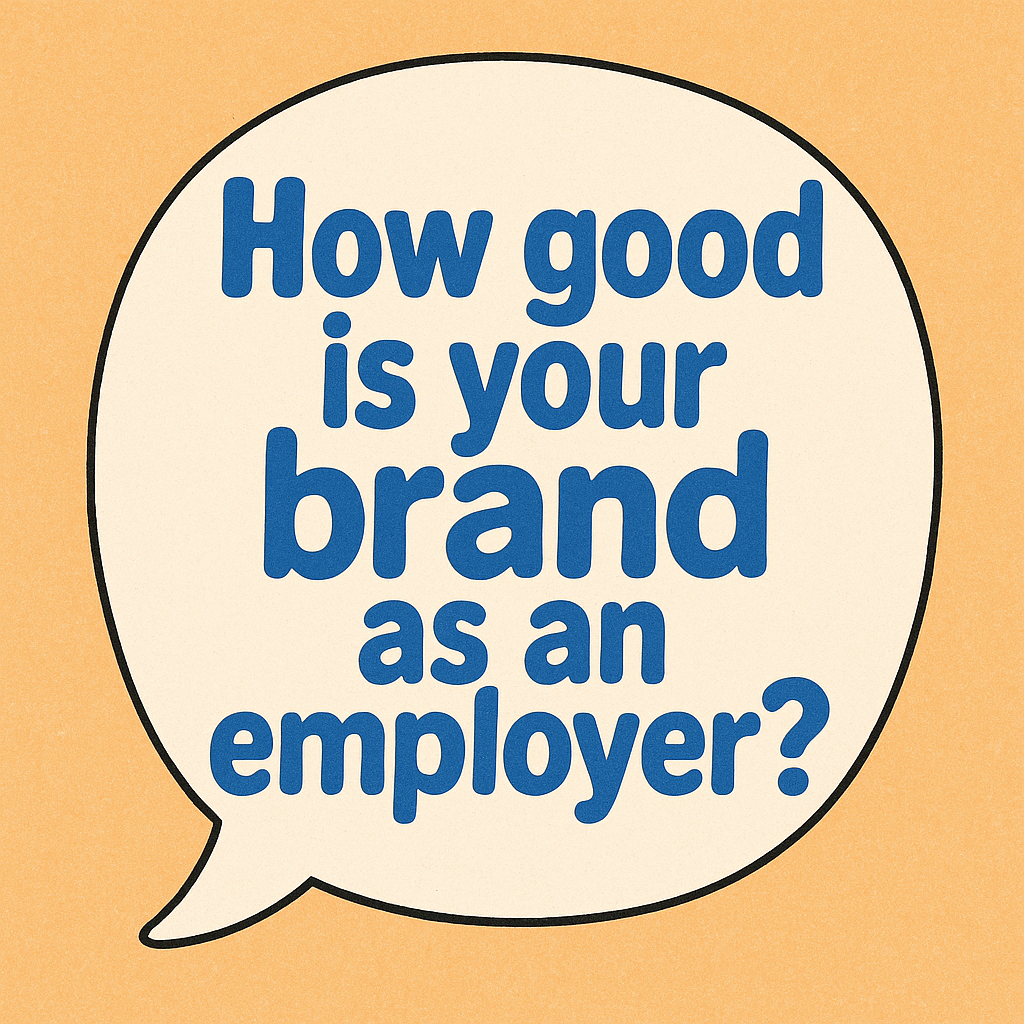
Attracting the Best Talent
- Its all about the brand!
Employer brand is a thing. It wasn’t always a thing. It started as something rather nebulous and fluff; the sort of conceptual idea that no one really knew how to implement, and whose target audience didn’t realise they needed it. Thankfully, changes in mindset and culture have driven leading employers to reconsider, and benefit from, their entire relationship with talent; current and potential employees. In essence, “Employer Branding” is the user experience from the candidate and employee perspective, and it is critical to attracting and retaining the best talent.
So why is it so important? Unfilled vacancies according to the ONS across the UK, stood at 718,000 in May–July 2025, 16.8% lower than last year. In print and packaging specifically the average time to fill roles has doubled for many employers, your vacancy, your brand needs to shine! An Industry Specific Recruitment Company; Mercury Search and Selection can be your partner and advocate on your behalf.
Employer Branding, and more specifically, candidate experience is critical because the overwhelming majority of candidates believe that the hiring process reflects how a company treats its staff. Treat candidates badly, or even carelessly, and you risk ruining your chances of securing the best talent. It gets worse: candidates talk. Job seekers research companies before applying, and would not apply to a business with a poor reputation. You won’t even get the chance to disappoint the best talent if your reputation is poor.
The Employer Brand must be communicated, but it has to be built first.
Many employers focus on limited aspects when recruiting; compensation, benefits, and perhaps career prospects or the work environment. Even when they have a really positive work culture, many employers omit or gloss over this “softer” side of the employee experience in favour of the nuts and bolts of the job itself.
Others focus negatively on “perks” such as sofas and pool tables, almost misrepresenting the role. Overselling the “recreational” risks attracting the wrong people, sometimes worse than no one at all. Communicating brand awareness starts with word of mouth from current employees, a careers site, and showcasing your business (not just your products) on social media. Candidate experience is fundamental to your employer brand, and statistics overwhelmingly show that a positive candidate experience enhances applications to your business.
Most candidates believe that a company’s hiring process reflects how they treat their staff. Communication and speed are central to candidate experience. Employers ought to plan and schedule time, for all involved, weeks before they start recruiting. Once you have a candidate’s interest, you must progress as quickly as possible. Delays and excuses like “the director is on holiday” won’t cut it, candidates will lose interest.
At the earliest stage of application, prospective candidates will research your company, your website, your social media presence, and word of mouth; which feeds into my next point. Once contact is made, it is essential to respond positively and quickly. Even if you are turning someone down, a courteous and timely response enhances your reputation. I cannot tell you how many times we’ve heard: “Oh, I applied to such-and-such and never heard back.”
If the candidate is suitable, schedule the interview as soon as possible then show your interest. At interview, treat them with respect. You are not grilling them, you are trying to get the best out of them. Putting candidates on the back foot risks missing a star performer and damaging your employer reputation. Long gone are the days when employees had to be grateful just to have a job.
Rapid and thorough feedback after interviews is crucial. Uncertainty kills relationships, and it kills the recruitment process. If the candidate is not for you, let them know respectfully and constructively, as soon as possible. This enhances your reputation as an honest and upfront employer. If you want to progress with the candidate, tell them, explain what you liked, where concerns lie, and give them a chance at second interview to address them. Remember, the aim is to get the best out of the candidate, not lose them to a misunderstanding.
On the flip side, ask candidates if they are still interested, what they like, and what concerns they have. This is your chance to re-sell the opportunity, reconfirm their understanding, and address concerns if possible.
When it comes to making an offer, you should already understand what will secure them. Don’t “low-ball” because you want to negotiate, it is disrespectful. The candidate will feel insulted, let down, and may reject the role. You risk wasting weeks of your own time and damaging your company reputation. That said, it is not all about money; the process should highlight career progression, training, development, and fringe benefits.
Speed and effective communication are still important at this stage. The offer should always be presented directly first, in person or by telephone. It’s a selling process, allowing you to gauge reaction and adapt. Once you have a verbal agreement, get it in writing quickly within a few days, not weeks.
Finally, put thought and planning into onboarding. This starts as soon as the candidate resigns from their previous role. Keep in touch, invite them to events, make them feel part of the team. Regular contact during notice periods prevents them from drifting towards other offers. On start date, have a structured plan for orientation, introductions, and staged progression. Frequent catch-ups with their new manager ensure progress and engagement. This is a big investment, make sure it pays off!
Employer Branding—it may sound like a fancy concept, but really it is about mindset, culture, planning, and respect. The best talent has a choice, make sure they choose you.









